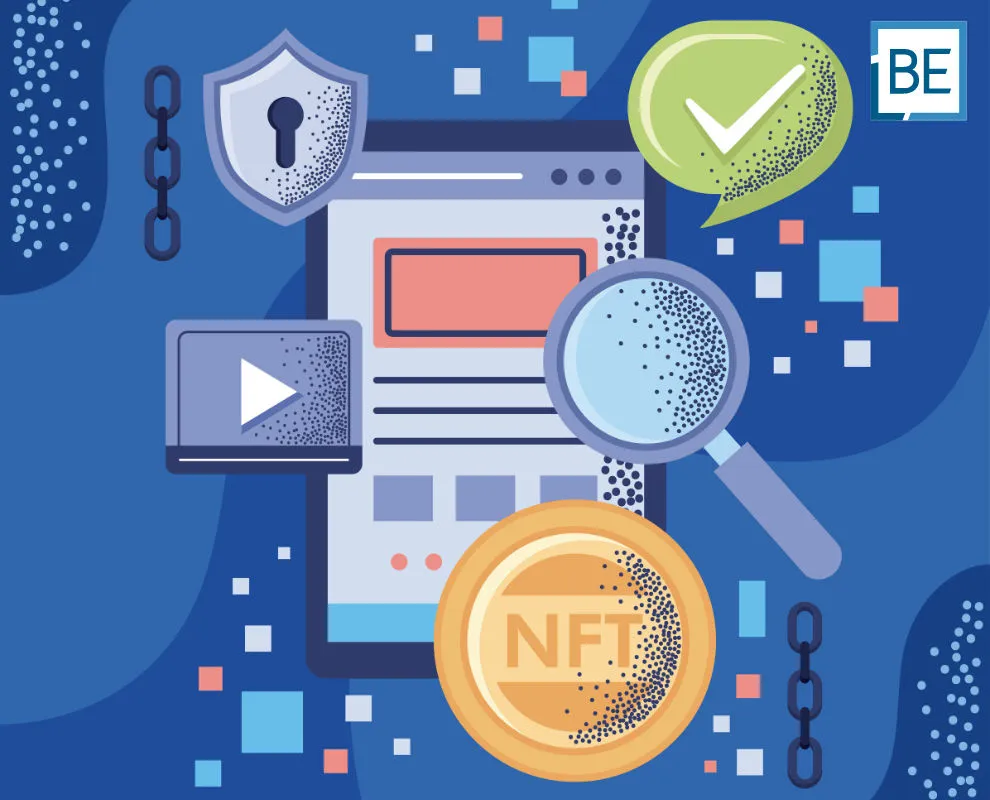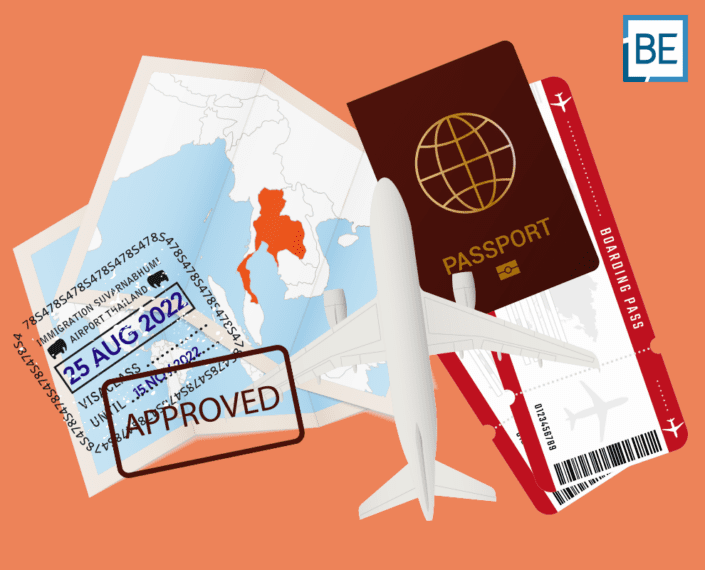Legal
Digital Assets and Crypto Businesses: Licences in Thailand
The Thai digital asset/cryptocurrency market is fast becoming a popular choice for investors looking to start a business within this space. Thailand has been attracting both established companies and entrepreneurs, both domestic and international, looking to start their digital assets business.
Understanding this rapid growth, Thailand has taken proactive steps to adapt. The Securities and Exchange Commission (SEC) has been instrumental in establishing a regulatory framework to promote a dynamic and secure digital asset environment.
In this blog post, we will explore what digital licences are required for crypto businesses to successfully operate as a digital asset company in Thailand.
Key points
- Digital asset & crypto businesses in Thailand require specific licences from the Securities and Exchange Commission (SEC). The most common licences include the exchange, broker, dealer, fund manager, and advisory licences.
- Foreign ownership of digital asset businesses is restricted – companies must be majority Thai-owned or obtain a Foreign Business Licence, which is practice in very difficult to receive approval for.
- Minimum registered capital requirements vary by licence type, ranging from 1 million to 50 million THB depending on the specific business activities.
- Licence fees and annual fees must also be paid after receiving a digital asset licence.
- The licensing approval process typically takes 150 days, involving review by both the SEC and Ministry of Finance
- The company must begin operations within 180 days of receiving approval.
What are Digital Assets?
Digital assets are any digitally stored content or media that provide value to individuals or organizations, including images, videos, audio files, documents, and cryptocurrencies. They play a crucial role in modern business by enhancing brand identity, improving operational efficiency, and generating revenue through licensing and sales.
Proper management of digital assets is essential for protecting intellectual property and ensuring easy access and organization. As technology evolves, businesses that effectively leverage their digital assets can gain a competitive edge and unlock new opportunities for growth in an increasingly digital landscape.
Cryptocurrency
- Electronic data unit.
- Created on an electronic system or network.
- Being a medium for exchanging goods, services, rights, or digital assets.
- Other electronic data units as designated by the SEC.
Digital Assets
- Electronic data unit.
- Created on an electronic system or network.
- For determining:
- 1. The right of an investor to invest in any project or business (i.e., investment token).
- 2. The right to receive specific goods, services, or other right as agreed (i.e., utility token)
- Other electronic data unit as designated by the SEC
However, a cryptocurrency may be considered a digital token if the issuer intends to issue them to raise funds from the public, and if the cryptocurrency:
a) determines the right of an investor to invest in any particular project or business; or
b) determines the right to receive specific goods, services, or any other right as agreed upon by the parties.
How Open is Thailand to Digital Assets and Cryptocurrencies?
The Thai cryptocurrency market has witnessed a steady increase in adoption and usage over the years, driven by a combination of factors, including regulatory developments, increased awareness, and the growing interest of both individual and institutional investors.
A survey revealed that as of 2024, Thailand had 13.02 million crypto users which is roughly 18.1% of the total population. This figure is expected to reach 17.67 million users by 2028.
Over 69% of Thai investors were aware of cryptocurrencies, with the 18-24 age group emerging as the most active participants in the market. The popularity of digital assets can be seen in the surge in cryptocurrency trading volumes, particularly during the bull run of 2021.
Direct involvement by Thai banks and financial institutions has also started to increase as well and the emergence of licensed digital asset businesses, such as exchanges, brokers, and dealers like Bitkub. There are also several banks in Thailand are known for their openness to cryptocurrency transactions, including:
- Kasikornbank (KBank): KBank has been proactive in the digital asset space and provides services that facilitate crypto-fiat conversions.
- Siam Commercial Bank (SCB): SCB has been involved in various blockchain initiatives and supports crypto-related transactions.
- Bangkok Bank: Bangkok Bank has shown interest in blockchain technology and can facilitate transactions involving digital assets.
These entities have played an important role in facilitating the trading and exchange of cryptocurrencies in Thailand.
What Type of Digital Asset/Crypto Businesses Can Be Operated in Thailand?
Thailand has regulations in place for several different digital asset/cryptocurrency businesses. These are overseen by the Securities and Exchange Commission (SEC) which issues licences. Here are some of the main categories:
Cryptocurrency exchange/ Digital token exchange:
These platforms allow users to buy and sell digital assets.
Cryptocurrency broker/ Digital token broker
These businesses act as intermediaries between buyers and sellers of digital assets.
Cryptocurrency dealer/ Digital token dealer
These businesses buy and sell digital assets for their own account.
Digital Asset Fund Manager
This covers businesses that manage investment funds focused on digital assets.
Digital Asset Advisory Service
This includes businesses that provide consultation/advisory services on digital asset investment strategies.
Can Digital Asset/Cryptocurrency Businesses be 100% Foreign Owned?
Currently, it is not possible for a Digital Asset/Cryptocurrency Business to be 100% foreign owned. This is due to the restrictions of the Foreign Business Act which restricts foreigners from undertaking about 50 types of business. Digital Asset/Cryptocurrency Businesses are restricted to foreign owners due to the industry being designated as an area where “Thai nationals are not ready to compete” with foreigners. There is no BOI promotion for such business activities either.
Therefore, with the restrictions of the Foreign Business Act, Digital Asset/Cryptocurrency businesses can only be undertaken by a Thai company (a company registered in Thailand with Thai shareholder(s) owning more than 50% of the share capital). A private limited company is the most common business type for such a business.
The requirement for opening a Thai Limited Company are as follows:
- 2 shareholders
- One or more directors
- 50,000 THB minimum capital (2M THB if you want to have a work permit for a foreign employee )
- A registered corporate address in Thailand
Are There Any BOI Promotions for Digital Asset/Crypto Businesses?
Unfortunately, there are currently no BOI promotions available for business activities directly involved in Digital Assets or Cryptocurrencies. However, it is possible to have back office activities for companies in the Digital assets or Cryptocurrencies with a TISO promotion for instance or developing software.
Foreign Business Licence
A Foreign Business License (FBL) is a licence awarded to foreign companies or investors intending to engage in business activities typically restricted to Thai companies under the Foreign Business Act. The FBL allows foreign businesses to operate legally as a foreign owned company in Thailand and participate in certain industries or sectors otherwise limited to Thai citizens.
However, in practice obtaining a FBL is very difficult to achieve and it is recommended to proceed with a limited company with Thai partners.
Which Type of Business Licences from the Thai SEC May be Required and Why?
Operating a digital assets or cryptocurrency business in Thailand will require the company to obtain specific business licences from the Thai Securities and Exchange Commission (SEC). The type of licence required depends on the nature of the activities your Thai company intends to undertake.
Please see below for the main types of licences that might be applicable to the most popular digital asset/cryptocurrency businesses in Thailand:
Digital Asset Exchange License:
- Required For: Operating a platform where digital assets (including cryptocurrencies) can be traded.
- Why: If your company plans to facilitate the trading of cryptocurrencies for fiat currency or other digital assets on behalf of clients, it will need this licence. This ensures that the exchange complies with SEC regulations regarding security, customer protection, and anti-money laundering (AML).
Digital Asset Broker License:
- Required For: Acting as an intermediary in the buying and selling of digital assets.
- Why: If your company intends to act as a broker, connecting buyers and sellers of cryptocurrencies, this licence is necessary. It allows the company to conduct brokerage activities legally and ensures adherence to regulatory standards.
Digital Asset Dealer License:
- Required For: Buying and selling digital assets on behalf of oneself, this includes trading digital assets (such as cryptocurrencies) directly for the client’s own portfolio without acting as an intermediary for others.
- Why: If the company plans to offer services or presents themselves to the public as ready to provide services for buying, selling, or exchanging digital assets on their own behalf in the regular course of business a dealer licence is required. This licence ensures the company follows appropriate market conduct and AML regulations.
Digital Asset Advisory License:
- Required For: Providing advice related to digital asset investment.
- Why: If your company plans to offer advisory services regarding digital assets, such as investment strategies or market analysis, this licence is necessary to ensure that the advice given complies with SEC regulations.
What is the Process to Obtain a Licence for Digital Asset/Crypto Business Activities?
Preparation and Application:
- Documentation: Prepare necessary documentation detailing the business operations, including the purpose and scope of the trading activities, operational procedures, and security measures.
- Application Submission: Submit the application to the Thai SEC along with all required documents.
Review and Approval:
- Background Checks: The SEC will conduct background checks on the individual or entity applying for the licence.
- Financial Assessment: An assessment of the financial status of the applicant to ensure they have the capability to engage in digital asset trading.
- Security Review: Evaluation of the security measures in place to protect against fraud, cyber threats, and other risks.
Compliance and Ongoing Reporting:
- Regular Reporting: Once licensed, the individual or entity must adhere to ongoing reporting requirements, including transaction reports and compliance with AML/CTF regulations.
- Audits: Periodic audits by the SEC to ensure continuous compliance with regulatory standards.
What are the Registered Capital Requirements for the Digital Asset/Cryptocurrency Licences?
In order to be eligible to apply for a Digital Asset business licence, projects must be able to satisfy the minimum capital requirements. The amount of capital required depends on the licence.
Digital asset exchange:
- No less than THB 50 million for a regular digital exchange.
- No less than THB 10 million for a non-asset-keeping exchange.
- No less than THB 10 million for an asset-keeping exchange that does not have the ability to access or transfer customers’ assets without their approval.
Digital asset brokerage service:
- No less than THB 25 million for a regular digital asset broker.
- No less than THB 1 million for a non-asset-keeping broker.
- No less than THB 5 million for an asset-keeping broker that has no ability to access or transfer customers’ assets without their approval.
Digital asset dealer:
- No less than THB 5 million.
Digital asset fund manager:
- No less than THB 25 million for asset-keeping managers or managers who provide services to non-institutional customers.
- No less than THB 10 million for non-asset-keeping managers who only provide services to institutional customers.
Digital asset advisor:
- No less than THB 1 million.
Additionally, exchanges, brokers, dealers, fund managers and advisors must maintain net capital as prescribed by the relevant regulations.
How Much Does it Cost to Obtain a Digital Asset/Cryptocurrency Licence?
The following is the official fees for obtaining a licence.
Digital asset exchange:
- THB 2.5 million licence fee; and
- An annual fee of 0.002% of the total trading value .
Digital asset broker:
- THB 1.25 million licence fee; and
- An annual fee of 0.001% of the total trading value.
Digital asset dealer:
- THB 1 million licence fee; and
- An annual fee of 1% of the profit (capital gain) from the trading.
Digital asset fund manager:
- THB 0.5 million licence fee; and
- An annual fee of 0.001% of the total value of the assets under management each calendar year.
Digital asset advisor:
- THB 15,000 licence fee; and
- An annual fee of THB 25,000.
How Long Does it Take to Obtain a Digital Asset/Crypto Businesses License?
In practice, the timeline for obtaining one of the digital asset licences mentioned above is a minimum of 150 days from the date of submission to the SEC.
The expected timeline will be as follows:
- After the application has been submitted, the SEC will review the application and forward it to the Ministry of Finance (MOF) within 90 days of receipt. The MOF will then review the application themselves for a further 60 days from the SEC’s recommendation. After this 60 day period, the MOF will either accept or reject the application.
- If the MOF approves the application and grants the licence, the digital asset business operator must start operating within 180 days from the date that it obtains approval.
How can Belaws help?
For more information about obtaining a digital asset or cryptocurrency business licence why not talk to one of our experts now?
Please note that this article is for information purposes only and does not constitute legal advice.
Our consultations last for a period of up to 1 hour and are conducted by expert Lawyers who are fluent in English, French and Thai.
Consultations can be hosted via WhatsApp or Video Conferencing software for your convenience. A consultation with one of our legal experts is undoubtedly the best way to get all the information you need and answer any questions you may have about your new business or project.
USD 150
Up to 1 hour
Online payment (Paypal or Credit card)
Legal consultation can be conducted in English, French or Thai
Legal consultations are handled by experienced lawyers from the relevant fields of practice
Frequently asked questions
What types of licenses are required for digital asset businesses in Thailand?
The most common licenses include exchange, broker, dealer, fund manager, and advisory licenses. These are issued by the Securities and Exchange Commission (SEC) of Thailand.
Can foreign investors fully own a digital asset business in Thailand?
No, digital asset businesses cannot be 100% foreign-owned. They must be majority Thai-owned or obtain a Foreign Business License, which is very difficult to receive approval for in practice.
What are the minimum capital requirements for digital asset licenses?
The requirements vary by license type:
- Exchange: THB 50 million for regular, THB 10 million for non-asset-keeping
- Broker: THB 25 million for regular, THB 1 million for non-asset-keeping
- Dealer: THB 5 million
- Fund Manager: THB 25 million for asset-keeping, THB 10 million for non-asset-keeping
- Advisor: THB 1 million
How long does it take to obtain a digital asset license in Thailand?
The licensing approval process typically takes a minimum of 150 days. This includes 90 days for SEC review and 60 days for Ministry of Finance review.
What happens after a license is approved?
The digital asset business operator must start operating within 180 days from the date of approval.
What are the costs associated with obtaining a digital asset license?
License fees vary by type:
- Exchange: THB 2.5 million + 0.002% annual fee of total trading value
- Broker: THB 1.25 million + 0.001% annual fee of total trading value
- Dealer: THB 1 million + 1% annual fee of profit from trading
- Fund Manager: THB 0.5 million + 0.001% annual fee of assets under management
- Advisor: THB 15,000 + THB 25,000 annual fe
How popular are cryptocurrencies in Thailand?
As of 2024, Thailand had 13.02 million crypto users, about 18.1% of the total population. This number is expected to reach 17.67 million by 2028.
Which Thai banks are open to cryptocurrency transactions?
Kasikornbank (KBank), Siam Commercial Bank (SCB), and Bangkok Bank have shown openness to facilitating crypto-related transactions
How does Thai law define digital assets?
Thai law recognizes two types of digital assets:
- Cryptocurrencies: Electronic data units used as a medium of exchange
- Digital tokens: Electronic data units representing rights to invest in projects or receive specific goods/services
What type of company structure is recommended for a digital asset business in Thailand?
A private limited company is the most common business type. It requires at least 2 shareholders, one or more directors, a minimum capital of 50,000 THB, and a registered corporate address in Thailand.
Related articles
Subscribe today
Subscribe today
To our newsletter for all the latest legal news
in South East Asia, Belaws updates and
special promotions on our services.
To our newsletter today for all the latest legal news in South East Asia,
Belaws updates and special promotions on our services.







